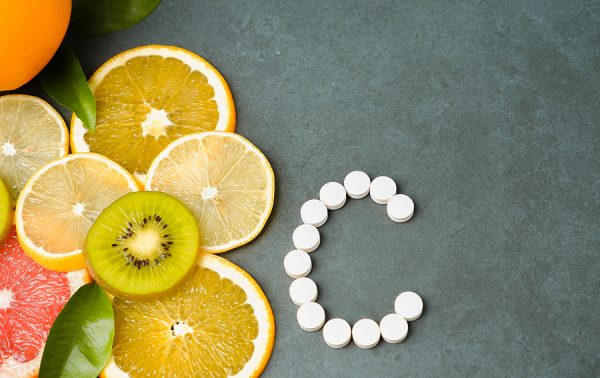By David Blyweiss, M.D., Advanced Natural Wellness
How many times have you heard that vitamins are a waste of money and you’re just making expensive urine, throwing money down the drain if you purchase them?
But the fact is, vitamins are needed to fill in nutritional gaps that, if not addressed, could lead to some very serious health concerns.
You see, these days it’s virtually impossible to get all of the vitamins and minerals you need through diet alone.
Why is that? Because, not only have we tolerated our environment becoming more degraded and toxic, initiating the cascades of chronic degenerative disease affecting us (and therefore our need for enhanced levels of nutrients to protect us), but in the last sixty to seventy years, degenerative agricultural practices have wiped out nutrients from our soil. These same practices have messed up the microbiome in the soil, so plants can’t draw nutrients from the ground into their roots – and into the fruits and vegetables we’re eating.
So the food we eat is a lot less nutritious than it used to be when we really need it to be more.
On top of that, a whopping 9 out of every 10 American adults don’t even bother to eat the recommended two to three cups of vegetables each day. Add in all of the canned, processed, sugary and salty on grocery store shelves, and it doesn’t bode well for our future health.
In other words, we have plenty of food here in the U.S. But when it comes to the nutrient value of those foods, we’re poverty-stricken.
The latest NHANES analysis on nutritional gaps showed that many adults here in the U.S. aren’t meeting daily requirements for several vitamins and minerals.
Specifically, 45% had inadequate vitamin A intake. Those numbers were 46% for vitamin C, 95% for vitamin D, 84% for vitamin E and 15% for zinc. Inadequate intakes for magnesium (52.2%), calcium (44.1%), choline (91.7%) and vitamin K (66.9%) are also an issue.
In the meantime, all news about supplementing with a multivitamin is good news.
Filling in the Gaps
Taking a daily multivitamin is an easy way to fill in those nutritional gaps. In fact, people who regularly use a multivitamin are able to increase their daily intake of at least 17 nutrients, regardless of their age.
But the effect is most stunning in older adults. These people tend to have a worse nutrient status to start with… many secondary to the medications they take. In fact, folks in their 60s average 15 prescription medications a year. Combined with over-the-counter drugs, they may do more harm than good. So it’s amazing to see how greatly their nutritional status improves in vitamins A, the B’s, C, D and E, magnesium and other nutrients, simply by taking a multivitamin.
And here’s the most important part of this discussion.
Let me restate this; nutrient deficiencies – even when they’re mild – can contribute to a whole host of problems, including heart disease, chronic pain, inflammation, depression, cancer and other health issues.
So I consider multivitamins to be a very inexpensive insurance policy against deficiencies that could ultimately shorten your lifespan or leave you incapacitated in your later years.
4 Nutrients That Are Nearly Impossible to Get from Food
There are also a few nutrients that can be very difficult to get enough of from a regular diet. That being said, I think most everyone should be taking them in supplement form, every single day.
Omega-3 fatty acids are at the top of the list. Our bodies can’t make these, and most people don’t eat enough fatty fish to maintain adequate levels of this essential nutrient. Omega-3s are absolutely wonderful for your cardiovascular health. They improve your mood, support healthy skin and joints, enhance brain function and reduce inflammation.
Look for an omega-3 supplement that contains oil from fresh, wild-caught, deep-sea fish. And make sure it’s been molecularly distilled and tested for purity.
Vitamin D deficiency is a huge problem here in the U.S. That’s because, during the winter months, the sun is too far south in more than half of the states in the U.S. for people to even generate vitamin D.
Among other things, vitamin D deficiency is associated with immune disorders, several deadly forms of cancer, cardiovascular disease, osteoporosis, chronic pain, dementia, diabetes and depression.
With the exception of a few fatty fish, very few foods naturally contain it. So it’s hard to get enough vitamin D in your diet unless you take a supplement. I prefer taking vitamin D3 in the cholecalciferol form because it is more absorbable than other forms. As an aside, while mushrooms contain some Vitamin D, exposing them (their gills actually) to midday sunlight for as little as 15 minutes will substantially increase that Vitamin D content.
CoQ10 is one of those supplements everyone over the age of 40 should take, every single day.
CoQ10 powers up your mitochondria to provide your cells with energy. It can help improve cardiac output and cut your risk of experiencing a heart attack or stroke. It lowers blood pressure and helps slow the progression of neurological disorders, like Alzheimer’s and Parkinson’s.
The amount of CoQ10 you get from food is minimal. You simply can’t get enough to sustain adequate levels. I recommend supplementing with ubiquinol, which is the most biologically active form of CoQ10.
Probiotics support digestive health by stocking your gut with beneficial bacteria. If you eat the right foods, you might be able to get enough of them in your diet. But most people don’t.
In that case, supplementing with a good probiotic makes a lot of sense. Look for one that contains multiple strains of lactobacillus and bifobacterium. The more strains and the higher the colony count, the better off you will be. It should also include a “prebiotic” to help the good bacteria thrive in your gut.
Eating a healthy diet and taking a multivitamin, omega-3 fish oil, vitamin D3, CoQ10 and probiotic every day can help you meet your minimum needs for good health. And who doesn’t want more good health in their life?
SOURCES:
Thomas D. The mineral depletion of foods available to us as a nation (1940-2002)–a review of the 6th Edition of McCance and Widdowson. Nutr Health. 2007;19(1-2):21-55.
Reider CA, Chung RY, Devarshi PP, Grant RW, Hazels Mitmesser S. Inadequacy of Immune Health Nutrients: Intakes in US Adults, the 2005-2016 NHANES. Nutrients. 2020 Jun 10;12(6):1735.
Micronutrient Inadequacies in the US Population: An Overview. Linus Pauling Institute, Oregon State University. Copyright ©2022 Oregon State.
Blumberg JB, Frei B, Fulgoni VL, Weaver CM, Zeisel SH. Contribution of Dietary Supplements to Nutritional Adequacy in Various Adult Age Groups. Nutrients. 2017 Dec 6;9(12):1325.
Ward, E. Addressing nutritional gaps with multivitamin and mineral supplements. Nutr J. 2014 13, 72.
Swanson D, Block R, Mousa SA. Omega-3 fatty acids EPA and DHA: health benefits throughout life. Adv Nutr. 2012 Jan;3(1):1-7.
Yang CY, Leung PS, Adamopoulos IE, Gershwin ME. The implication of vitamin D and autoimmunity: a comprehensive review. Clin Rev Allergy Immunol. 2013;45(2):217-226.
Kostoglou-Athanassiou I, Athanassiou P, Lyraki A, Raftakis I, Antoniadis C. Vitamin D and rheumatoid arthritis. Ther Adv Endocrinol Metab. 2012;3(6):181-187.
Savastio S, Cadario F, Beux S, Giorgi A, Genoni G, Bagnati M, et al. Vitamin D and Type I Diabetes. Open Rheumatol J. 2018;12(Suppl-1,M8):289-299.
Grant WB, Al Anouti F, Boucher BJ, Dursun E, Gezen-Ak D, Jude EB, Karonova T, Pludowski P. A Narrative Review of the Evidence for Variations in Serum 25-Hydroxyvitamin D Concentration Thresholds for Optimal Health. Nutrients. 2022 Feb 2;14(3):639.
DiNicolantonio JJ, Bhutani J, McCarty MF, O’Keefe JH. Coenzyme Q10 for the treatment of heart failure: a review of the literature. Open Heart. 2015 Oct 19;2(1):e000326. Mancuso M, Orsucci D, Calsolaro V, Choub A, Siciliano G. Coenzyme Q10 and Neurological Diseases. Pharmaceuticals (Basel). 2009 Dec 1;2(3):134-149.






